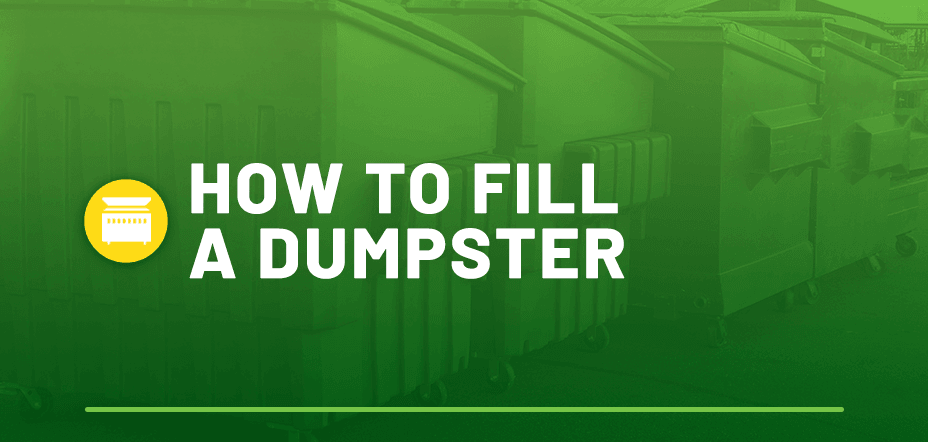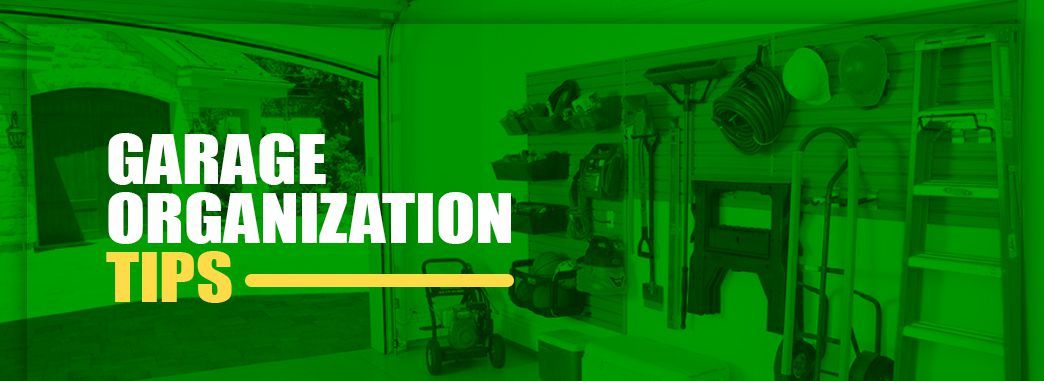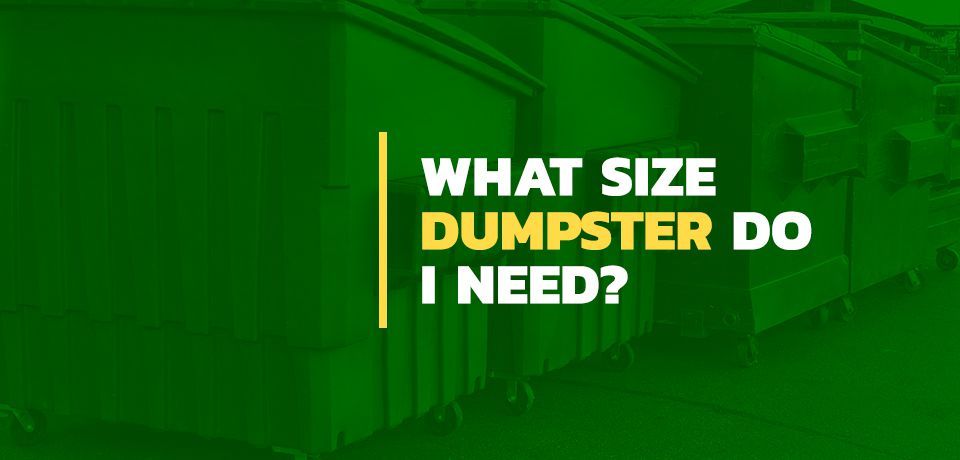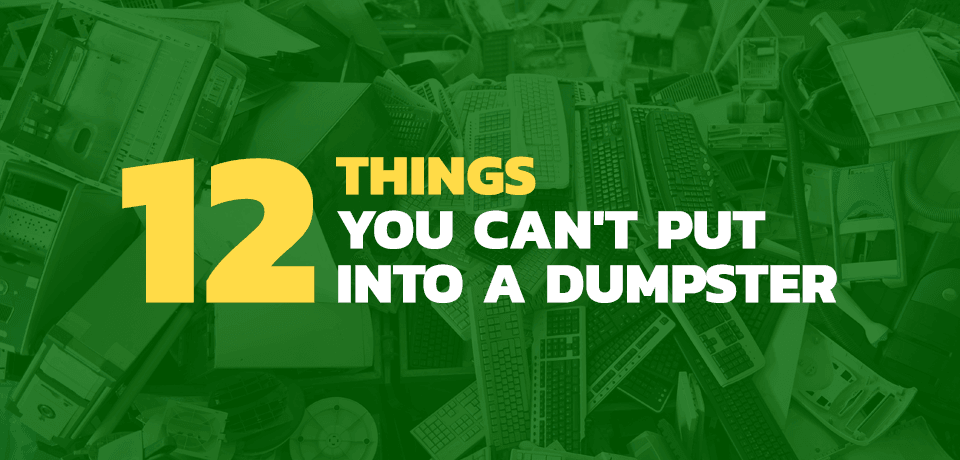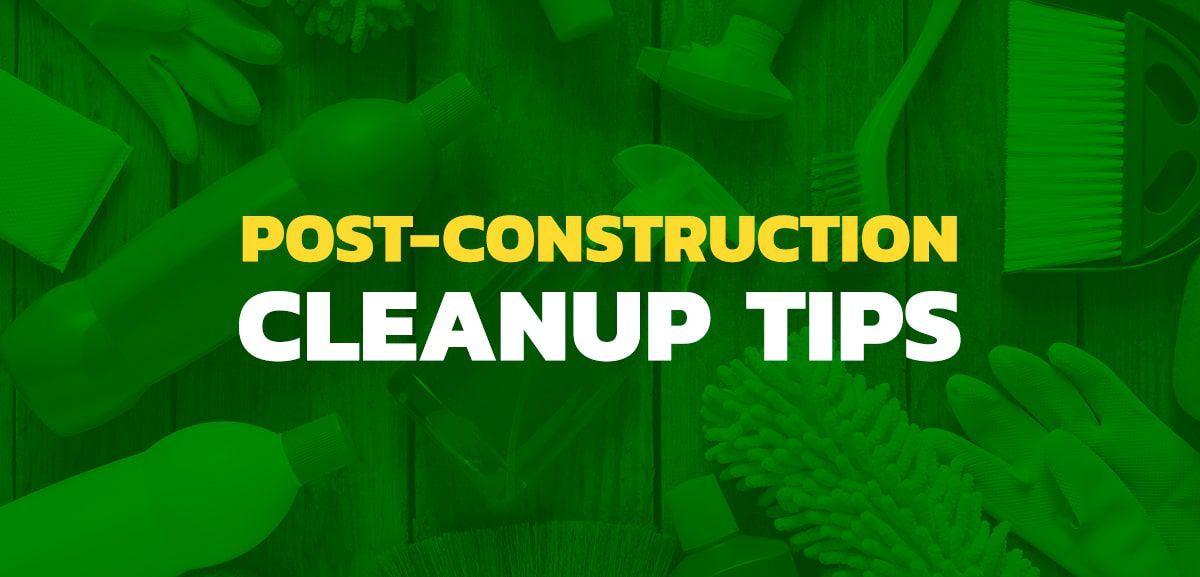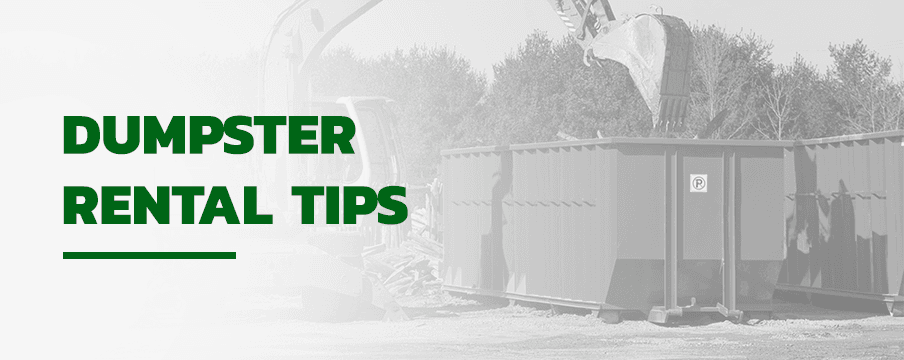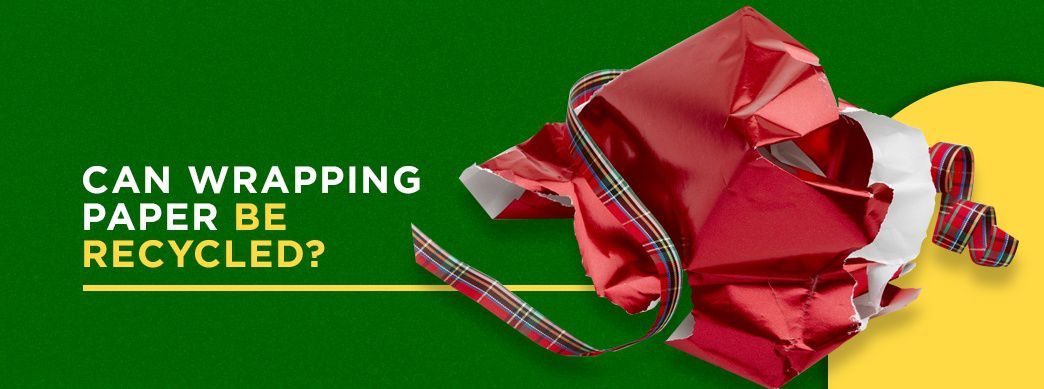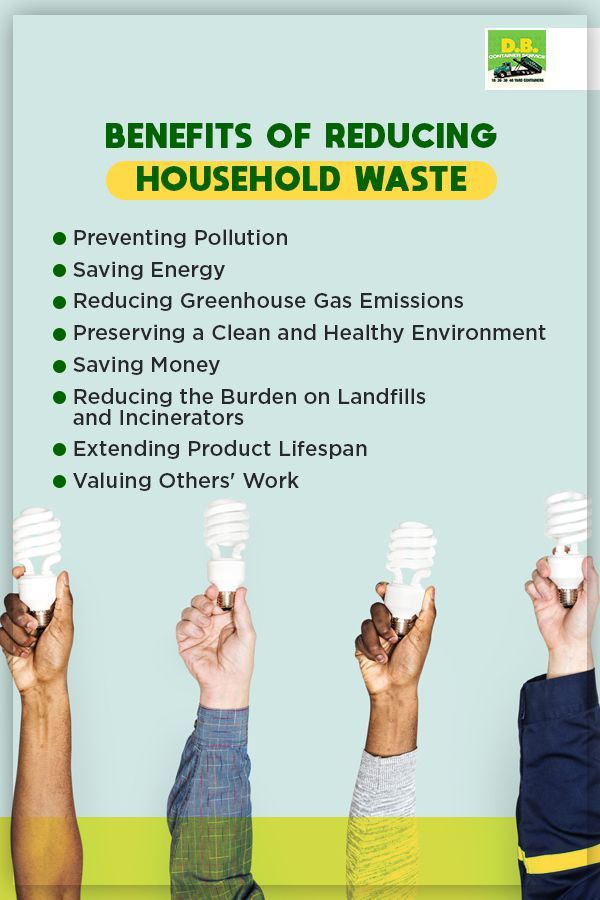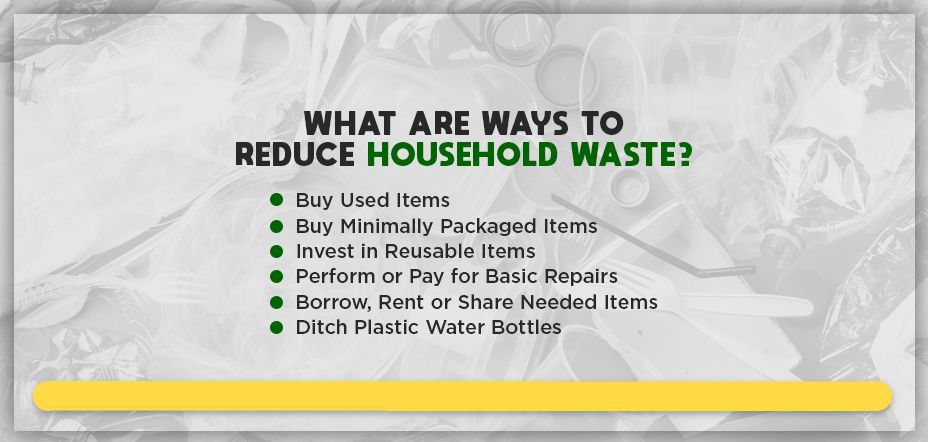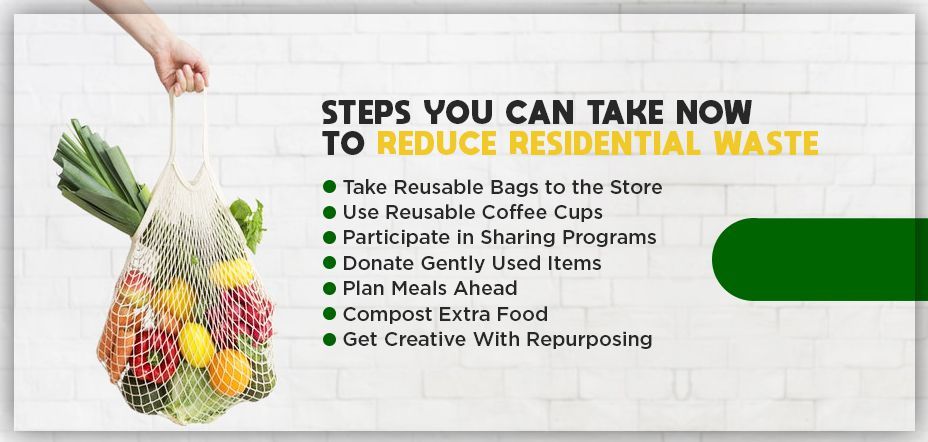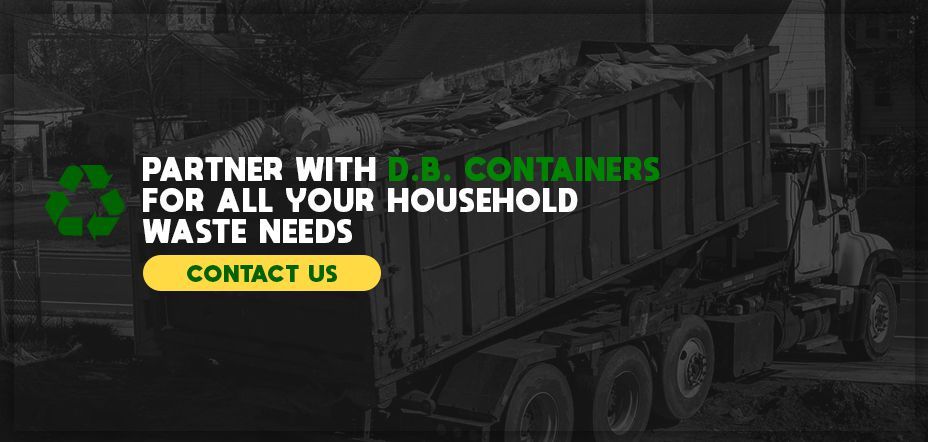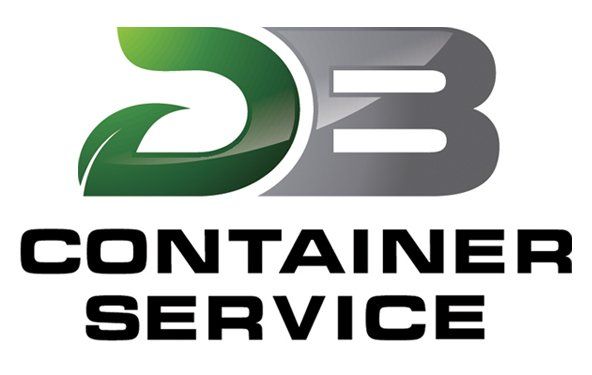How to Reduce Household Waste
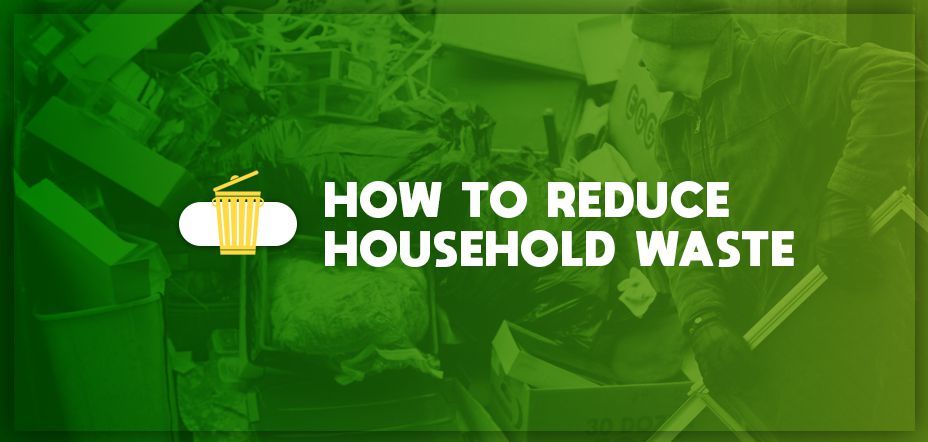
The United States generates unbelievable quantities of municipal waste every year. The latest figures from the U.S. Environmental Protection Agency (EPA) show that the United States generates 267.8 million tons of municipal solid waste a year, or about 4.5 pounds of waste per person every day.
And of course, all those tons of solid waste can have a devastating effect on the environment. Municipal solid waste landfills are the third-largest source of methane emissions — which contribute to the greenhouse effect — in the United States, accounting for 16% of such emissions. Pollution, fossil fuel burning and other greenhouse gas emissions are associated with excess waste as well.
What are some ways to reduce the amount of waste in your home? Fortunately, households have a variety of options — the familiar injunction to "reduce, reuse, recycle" is excellent advice to start with. Below, we'll elaborate on some ways to reduce household waste and how to get started incorporating those strategies into your daily life.
Benefits of Reducing Your Household Waste
Taking steps to reduce waste in your household provides several different benefits.
1. Preventing Pollution
Manufacturing new items can often require burning fossil fuels, which adds pollution to our atmosphere. It also requires raw materials, which companies often procure through mining, oil extraction and other procedures that generate pollution as well. By recycling and reusing your household items, you help cut down on pollution and keep the planet green for future generations.
2. Saving Energy
The production of new items also uses tremendous amounts of energy. Using excess energy, particularly fossil fuel energy, drains our planet's resources and pollutes the environment as well. Reusing and recycling household materials helps cut down on the amount of energy needed to produce new materials, and the environment benefits as a result.
3. Reducing Greenhouse Gas Emissions
One of the direst consequences of increased pollution is increased levels of greenhouse gas emissions. Burning more fossil fuels to generate new products for consumers leads to the emission of more greenhouse gases like carbon dioxide and more heat trapped in the Earth's atmosphere. It also results in dire climate changes like rising sea levels, increased temperatures, extreme weather events, ocean acidification and more. Reducing household waste by reusing and recycling helps curb these harmful effects.
4. Preserving a Clean and Healthy Environment
Many of us have a dedicated interest both in maintaining a clean, livable environment for ourselves and leaving a habitable planet for the generations that come after us. Reducing greenhouse gas emissions and keeping our waste items out of landfills helps us take steps toward a greener future. Reducing household waste by reusing and recycling diminishes the amount of hazardous waste we throw into the environment. It helps keep the planet green and healthy for our generation and future generations to enjoy.
5. Saving Money
Reducing household waste also has the immediate practical effect of saving money. Buying items only to throw them out in a couple of years and replace them with brand-new items is financially wasteful. Exercising thrift by repurposing and reusing old items helps save your household valuable money you can then use for treats, experiences, medical expenses, savings and many other fun and useful options.
6. Reducing the Burden on Landfills and Incinerators
Landfills have limited space, and incinerators have limited capacity. If these forms of waste disposal become overloaded, the excess waste could pile in cities, towns and the once-pristine landscape. Reducing and recycling help ease the disposal burden on landfills and incinerators, allowing them to continue to work effectively to keep our spaces clean.
7. Extending Product Lifespan
It's often a little sad when products that had a lot more life and utility left in them go into the garbage. Even when a new phone model comes out, our old ones still work well. And even when a new style of clothing comes into fashion, our old wardrobes are still serviceable. Recycling and reusing these older items helps to get the fullest amount of use out of them.
8. Valuing Others' Work
Reducing waste by reusing and recycling household items also helps value the labor of the people who worked hard to make the items. Even mass-produced items have people behind them whose labor we can value by reusing or recycling the items instead of thoughtlessly throwing them away.
What Are Ways to Reduce Household Waste?
What is household waste management? Household waste management is disposing of your household garbage in a conscientious, planned and sustainable way. When you're figuring out how to reduce household waste, you can try several different options and see what works best — or incorporate them all. Reduce household waste by taking a few simple steps like the ones below.
1. Buy Used Items
Needing a new outfit, piece of furniture, laptop, bike or even a new car presents a wonderful opportunity to reduce waste by buying used. Try thrift stores, consignment shops or the sale sections of Craigslist or your local newspaper. Chances are high that you can find something as good as new for a much lower price.
2. Buy Minimally Packaged Items
One of the waste materials that can be reduced through conscientious consumption is packaging. Have you ever bought a tiny toy, hair clip, battery or electronic device that came sheathed in a vast swath of bulky plastic packaging? That packaging costs dearly in the resources needed to make it, and it immediately goes into the landfill, where it will likely remain for years.
To combat this effect, look for products that come in minimal packaging or no packaging, and choose nonplastic packaging like paper or cardboard when you can. Buying in bulk is often an excellent way to minimize the packaging of your purchases. You can also extend this strategy to the grocery store — forgo plastic bags for your produce since all the protection it needs is a thorough rinse when you get home.
3. Invest in Reusable Containers and Items
Investing in reusable instead of disposable items is another excellent step to take. If you host a dinner party, put out flatware you can wash rather than disposable plates, cups and utensils that will pile up in the garbage. Buying reusable towels and cloths for sopping up messes is an Earth-friendly alternative to stocking up on paper towels as well. Additionally, disposable cleaning times may be convenient, but the planet will thank you if you use mops, rags and other reusable items instead.
You can also buy reusable napkins instead of the paper kind, and use reusable storage containers instead of single-use plastic items. You can even buy reusable trash liners if you don't mind a little extra laundry.
4. Perform or Pay for Basic Repairs
Small amounts of damage to your belongings doesn't have to spell the end of their lifespans. You can patch a tire, patch an air mattress, mend a tear in a shirt or fix a broken shelf. If your hard drive crashes, have a new drive installed instead of getting a new computer, and if a household appliance breaks, call a repair professional instead of ordering a new one and driving your old one to the dump. A few minor repairs can quickly add up to a household of items kept functional and out of the landfill, so do what you can when damage or malfunctions occur.
5. Borrow, Rent or Share Needed Items
If you need something new, your first impulse may be to go to the store or order online. But before you do, consider borrowing or renting instead. If you're looking for new books to read, suggest a book swap with a friend or visit your local library. If you need a bike, see if a neighbor has an old one you can use for a while. Or if you need some extra chairs and tables for a party, see if you can borrow or rent them instead of purchasing them for one use and potentially getting rid of them afterward for lack of storage space. And if you know of anyone looking to buy something you have, offer to share, trade, loan or sell the item outright if it's not something you use frequently.
6. Ditch Plastic Water Bottles
Plastic bottles are huge contributors to landfill waste. Many are marked as recyclable, but not all communities recycle, and not all recyclable waste ends up in recycling facilities. Do your part to curb the pileup of nonbiodegradable plastic waste by minimizing your use of bottled water. In most communities, the tap water is just as safe to drink as bottled water is, so pour yourself a cool, refreshing glass, or invest in reusable water bottles or thermoses to take water on the go. Ditching plastic water bottles is also an effective way to save you money on your grocery bill!
Steps You Can Take Now to Reduce Residential Waste
If you're looking to start reducing waste right now by improving your personal waste management, here are a few more ways to get started.
1. Take Reusable Shopping Bags to the Store
Like water bottles, single-use plastic bags generate tons of plastic waste. Help cut down on that waste by taking reusable bags to the grocery stores. If you're like many people, you often find yourself at the grocery store even though your reusable bag is still at home, so consider keeping a stock of reusable bags in the car to increase the chances that you'll have one at hand when you need one.
2. Use Reusable Coffee Cups
If you frequently find yourself craving coffee or tea from your local coffee shop, take a reusable cup or thermos with you when you go. Coffee cups, their plastic lids and the insulating protectors around them quickly add up to tons of landfill waste. But you can do your part to diminish that mound of beverage waste by taking your own cup or thermos and washing it out before the next use. An attractive thermos lets you show off your style and do something healthy for the environment at the same time, so remember to take your reusable beverage holder out around the town.
3. Participate in Sharing Programs
If you need occasional transportation but don't want to make a big purchase, consider taking part in a bike- or car-sharing program. For the expenditure of a little cash, you can meet your transportation needs without having to buy a bike or a car that will one day end up in a junkyard. But don't worry — even if a personal vehicle is a necessary part of your life, you can still participate in sharing programs in other ways. Ask around in your community about programs for sharing or swapping shop or gardening tools, appliances, furniture or other useful household items.
4. Donate Gently Used Items
If you have unneeded items around your home that could be useful to someone else, donate them to a local thrift store instead of throwing them into the garbage, or offer them to someone else who might need them. Old coats, kids' and adults' clothing, furniture, game consoles, sports equipment, lawnmowers — anything you've upgraded for your household might still have tremendous value in someone else's. Donating has a number of benefits, too, such as:
- Decluttering your house
- Helping others in need
- Keeping items out of the landfill
- Potentially gaining you some valuable tax write-offs
If you've been planning to declutter for a while but can't quite seem to start in on the task, donating unused items is an option worth getting around to.
5. Plan Meals Ahead
Material items are not the only source of household waste — food waste is a major contributor as well. According to the EPA, food is the largest component of the solid waste that municipalities send to landfills. So reducing food waste in your household is critical.
If you impulse buy a cartload of produce but then end up ordering in for most of the week, those lovely crisp veggies and sweet fruits will quickly go bad on the counter or in the fridge. To help reduce food waste, try planning a week's worth of meals in advance so you can coordinate ingredients and plan what to buy. If you're not sure of your plans, buy foods that keep or freeze well so you can save them for later.
6. Compost Extra Food
When you're figuring out how to reduce food waste in your home, consider a compost pile as well. Eggshells, coffee grounds, and most table or food scraps can go into the garden compost, where they can go directly to nourish the soil rather than decaying in a plastic bag in the landfill. A compost pile is an easy way to help preserve a clean environment, so if the idea sounds intriguing, get started right away.
7. Get Creative With Repurposing
Look around your home — the number of items you could potentially repurpose might astonish you. Old rubber boots could turn into the perfect planter for flowers or a vegetable plant, and old egg cartons and colored paper could go to the local elementary school for art projects. Turn a creative eye toward the unused items in your household and start imagining new and exciting possibilities.
Partner With D.B. Containers for All Your Household Waste Needs
Despite your best efforts, sometimes household waste is unavoidable, especially if you have a major event, move, storm cleanup or home improvement project on your hands. In that case, trust D.B. Containers for all your waste disposal requirements. Through our residential services, we offer a range of dumpster sizes to suit your household's needs. We also pride ourselves on our outstanding customer relations, so no project is too big or too small. And we are happy to answer questions and help you find the waste solution that works best for your home.
Contact us today to learn more, or request a free quote.
